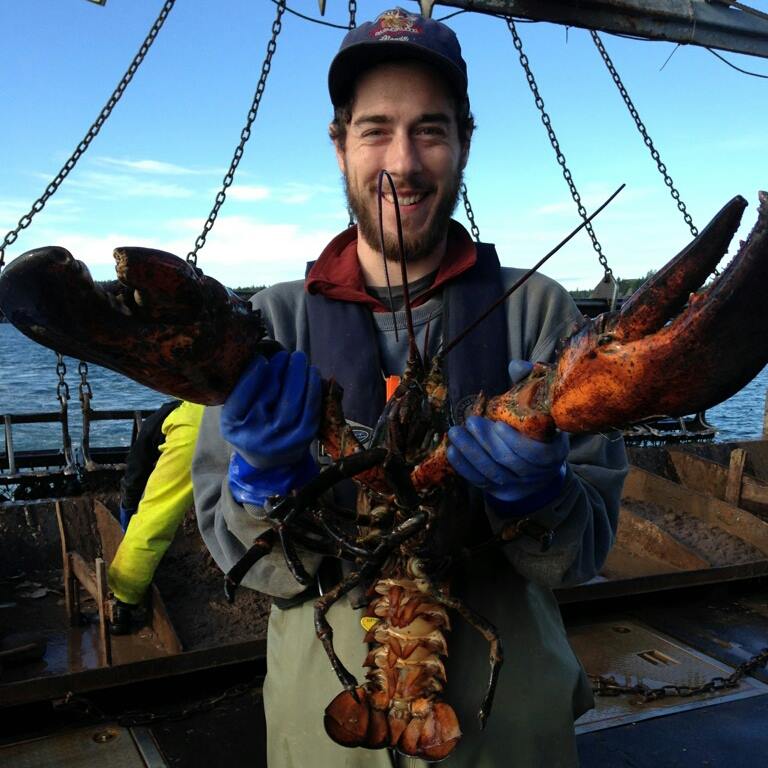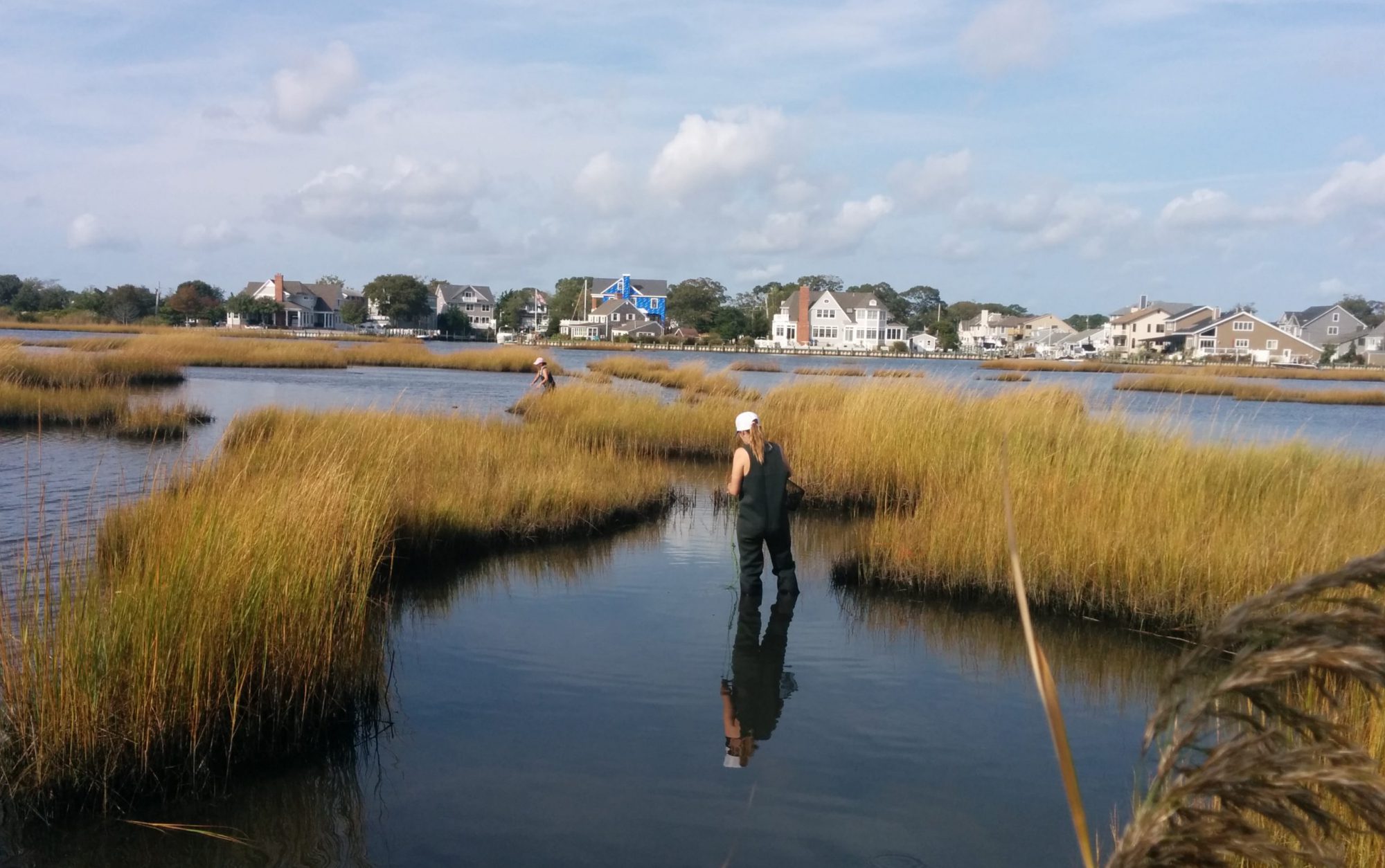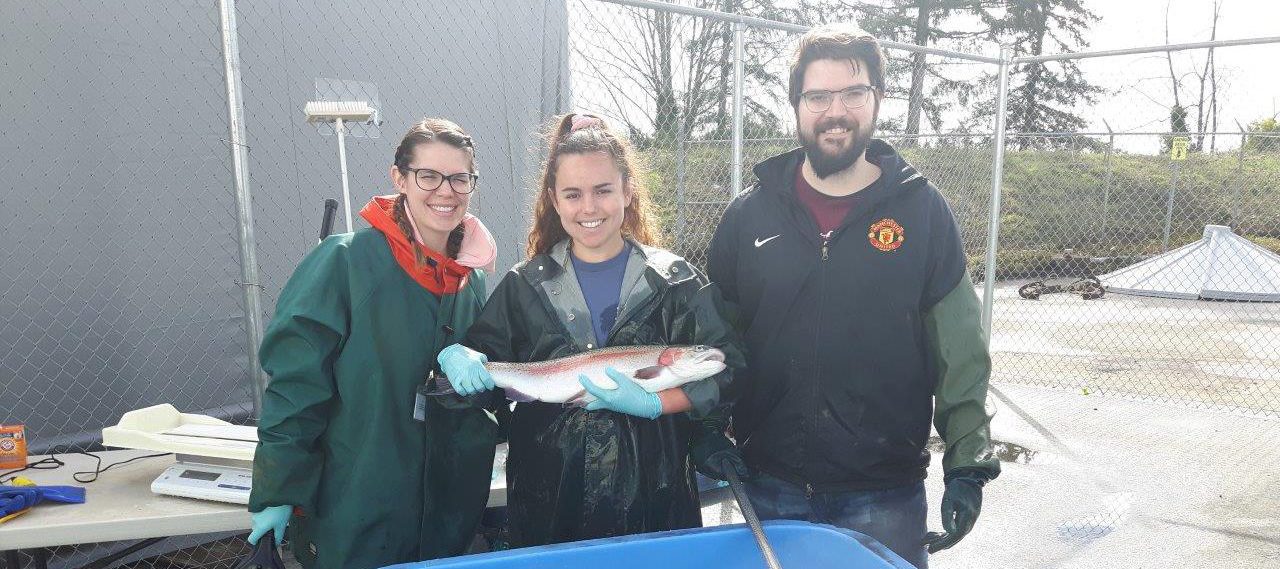
Trish Schulte, Principle Investigator
BSc, MSc: UBC, PhD: Stanford
Trish received her BSc (hon) and MSc in Zoology from the University of British Columbia and her PhD in Biology from Stanford University at Hopkins Marine Station. She then took up a position as an assistant professor in the Department of Biology at the University of Waterloo, moving to the Department of Zoology at UBC in 2001, where she is now a Full Professor. She is a Fellow of the Royal Society of Canada. Her work has been recognized by the American Fisheries Society with an Award of Excellence in fish physiology (2016). She is a past president of the Canadian Society of Zoologists and an editor with the Journal of Experimental Biology.

Madison Earhart, PostDoctoral Researcher
BSc: MSState, MSc: U Manitoba, PhD: UBC
Twitter Instagram Google Scholar Page
Madison is a postdoctoral fellow that works with threatened and endangered white sturgeon across British Columbia. Her current research project is focused on evaluating drivers of mortality in wild white sturgeon populations. Using non-invasive, cutting-edge techniques, Madison is able to assess stressors that may be contributing to mortality in wild sturgeon populations. Madison works in large, collaborative projects including universities, government agencies, recreational fishing guides and anglers, and non-profit organizations. The ultimate goal of this project is to assess physiological impacts of environmental change in order to identify causes of the mass mortality events and inform policy decisions to conserve our endangered sturgeon populations.

Adam Harman, PhD Student
BSc: Dalhousie University, MSc: McMaster University
Adam is PhD student studying natural differences in the thermal tolerance of common killifish along the east coast of North America. During his MSc in Dr. Joanna Wilson’s lab at McMaster University, Adam studied plastic changes in the thermal preference of lake and round whitefish in response to elevated embryonic incubation temperatures. He is most interested in how fish and other aquatic species will respond to global increases in water temperature caused by anthropogenic climate change.

Rachel Eisenberg, PhD Student
BSc: UBCO; MSc : Memorial University
Rachel is a PhD student focused on the effects of environmental stressors on the thermal and hypoxia tolerance, and their respective mechanisms, in the Atlantic killifish. She is interested in distinguishing differences between phenotypic plasticity and acclimation capacity of fish, and exploring these differences in tolerance in embryonic and adult life stages. Her research aims to address the mechanistic effects of thermal and hypoxia stressors on fishes, and how fish tolerate these environmental stressors. She completed her MSc at Memorial University of Newfoundland, studying how high and variable temperatures during incubation and development of lumpfish affects the later life short- and long-term thermal tolerance, metabolic parameters and stress biology of lumpfish.

Emma Flatt, PhD Student
BSc, MSc: University of Guelph
I completed my MSc at the University of Guelph in the lab of Dr. Sarah Alderman where I investigated the regulation of hsd11b2 in the adult zebrafish brain and its potential role in mediating the context-specific effects of stress on neurogenesis. Now in my PhD, I continue to have a keen interest in stress biology, and I am broadening my focus as I explore how local adaptation and developmental plasticity affect the endocrine system of fish. I am particularly interested in understanding hormone-mediated plasticity and its role in determining how fish respond to environmental stressors as well as the implications this has for marine ecosystems as climate change progresses.

Carley Winter, MSc Student
BSc: UBC
After graduating with my degree in Biology, I sought to explore opportunities in various fields, from marine mammal rehabilitation to conservational fieldwork. My interests then led me to an environmental research and toxicology lab where I performed standardized and specialized tests working with various larval fish and invertebrates. Since conducting toxicity evaluations, I was excited to join UBC’s Road Salt and Pacific Salmon Success Project to investigate the impact road salt contamination may have on the physiology of salmonids. We are exploring if pulses of salinity have implications on the hatching and development of Rainbow trout (O.mykiss), Coho Salmon (O.kisutch), and Chum Salmon (O. keta) by examining enzymatic gill activity, yolk sac absorption, whole body ions, and various other parameters.

Clare Kilgour, MSc Student
BSc: University of New Brunswick
Clare is an MSc student working on the Road Salt and Pacific Salmon Success Project. As part of this project, her current research focuses on understanding the scale of road salt contamination in Vancouver’s Lower Mainland, and how repeated exposure to pulses of high salinity impacts the physiology and development of local salmonid species. In her undergraduate honours thesis at the University of New Brunswick, she optimized assay protocols for the analysis of retina development in whole-body zebrafish. Since then, Clare has conducted surveys for monitoring projects in remote locations across Ontario and New Brunswick and has supported risk assessment of contaminated sites in British Columbia. Her focus is on using physiological and molecular evidence to support the management of environmental contamination and the protection of aquatic life.

